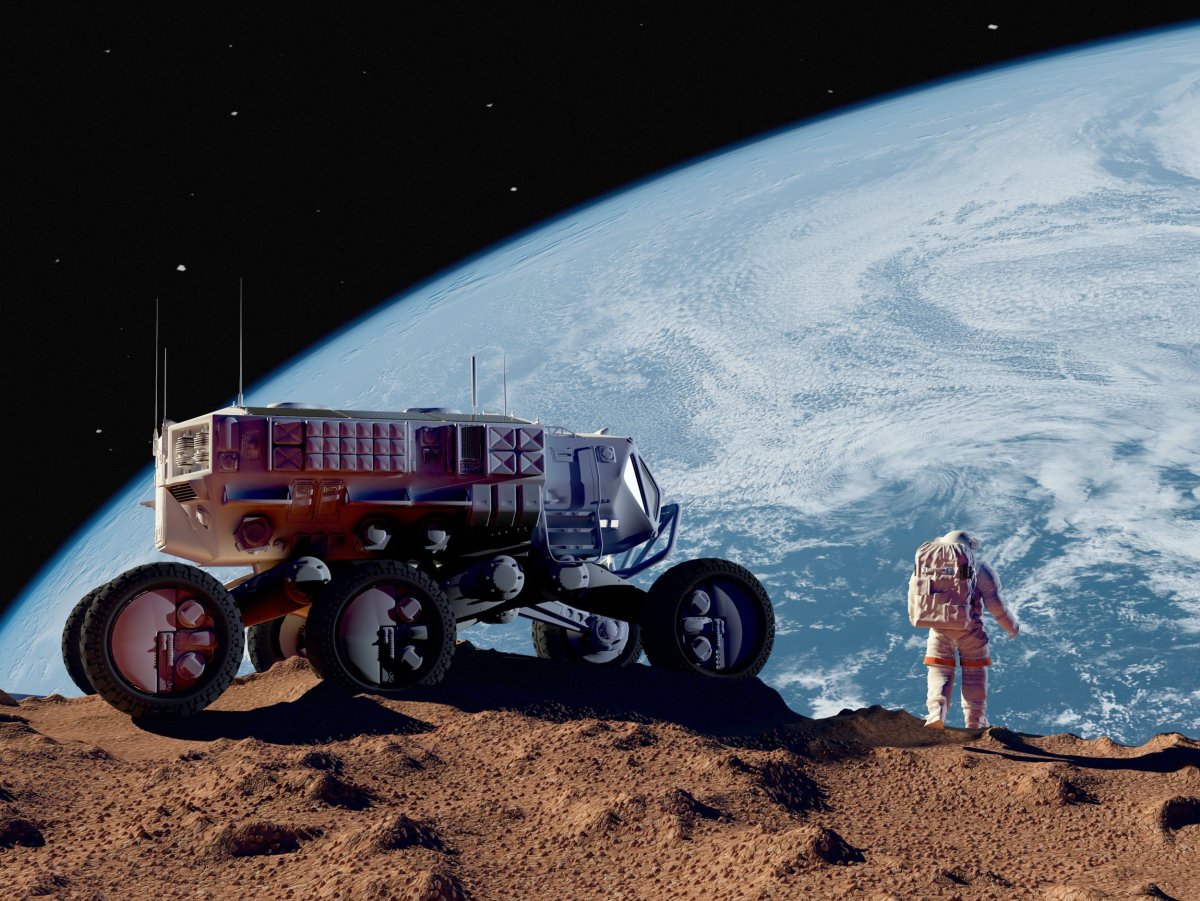With NASA and China recently outlining roadmaps for deep space exploration, humanity appears to be on the verge of sending astronauts to Mars and perhaps even further afield. However, there are several important obstacles that we must first overcome before this happens. For starters, research suggests that long-term space travel may be damaging to the health of astronauts due to the effects of harmful radiation—energy emitted in the form or rays, electromagnetic waves and/or particles.
Now, a study published in the journal Proceedings of the National Academy of Sciences has cast new light on this issue. Researchers from Georgetown University found that exposure to radiation of the type anticipated in interplanetary space may disrupt the functioning of certain cells in the intestines.
The team used mouse models to show that this kind of radiation—which would be prevalent on the way to Mars—can perturb a process known as "coordinated epithelial cell migration," that is essential to human health.
"In the intestine, epithelial cells—a layer of cells that partitions ingested contents from the body—are continually replaced every 3 to 5 days, something akin to what we see in skin," Kamal Datta, an author of the study from the Department of Biochemistry and Molecular & Cellular Biology at Georgetown, told Newsweek. "There is a conical flask-shaped structure called a crypt. Cells divide [grow] in the crypts and move [migrate] upward into projections called villi [in the small intestine], and into the lumen surface [in the large intestine, which does not have villi]."

The mice in the study were exposed to a non-lethal low dose of what's known as "ionizing radiation". This radiation consists of particles which carry enough energy to strip electrons from atoms or molecules. After observing the rodents for one year after exposure, the researchers observed that the radiation led to delayed cell migration, increased tumor formation in the intestines, signs of inflammation and a number of other potentially harmful effects.
"While animal data are difficult to translate to humans, in the absence of human data, this is the next best approach we can take to assess the risk of space radiation in an in vivo scenario during long-duration space travel," Datta said. "This is the first study of its kind, and further in-depth studies will be required to develop countermeasures for risk reduction."
While we are largely protected from ionizing radiation originating in space by Earth's atmosphere and magnetic field, for astronauts, it is difficult to avoid. The radiation has the ability to move through substances and alter them as it passes through by knocking out electrons.
"Ionizing radiation is like an atomic-scale cannonball that blasts through material, leaving significant damage behind," according to NASA. "More damage can also be created by secondary particles that are propelled into motion by the primary radiation particle. Beyond Low Earth Orbit, space radiation may place astronauts at significant risk for radiation sickness, and increased lifetime risk for cancer, central nervous system effects, and degenerative diseases."
Uncommon Knowledge
Newsweek is committed to challenging conventional wisdom and finding connections in the search for common ground.
Newsweek is committed to challenging conventional wisdom and finding connections in the search for common ground.
About the writer
Aristos is a Newsweek science reporter with the London, U.K., bureau. He reports on science and health topics, including; animal, ... Read more
To read how Newsweek uses AI as a newsroom tool, Click here.








